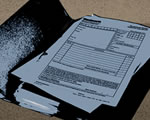 Go to main content
Go to main content
Archive Website of the UK government
Please note that this website has a UK government accesskeys system.
Main menu
Page menu
Home and community

Preparing to go to court for rent arrears

If your landlord is taking you to court for rent arrears, make sure you are prepared and you go to the hearing. You could get help from an adviser or check whether you get free legal help. Find out what questions you may be asked and watch a video about the process.
Your landlord takes court action
If you aren’t able to reach an agreement over your rent arrears, your landlord may ask the court to evict you. This is called making a ‘claim for possession’. If your landlord makes a claim for possession, you’ll receive the following paperwork from the court:
- copies of the claim for possession forms, completed by your landlord
- a court hearing date
- a blank defence form and guidance on how you should fill it out
- the court’s contact details
- information about organisations offering free advice on repossessions
Filling in the defence form
It’s very important to fill in the defence form and return it by the date given in the court paperwork. This is your chance to say why you have rent arrears and if you disagree with anything the landlord has written in their possession claim. You may have to pay extra court fees if you don’t provide information in the defence form, which results in a delay to your court case.
Court hearings – when they happen
If you don’t fill in the defence form, the hearing will still go ahead.
Hearings don’t happen if you have an assured shorthold tenancy or a statutory periodic tenancy and the landlord has gone to court under the fast track process. Otherwise, there is always a court hearing for possession if your landlord wants you to leave the property before the end of your tenancy agreement.
Attending court and seeking advice
It’s vital that you go to the court hearing. It’s your chance to tell the judge why you have rent arrears and how you can repay arrears in future. If you don’t go, it’s very likely that the judge will give your landlord the right to evict you. As soon as you receive a date for the court hearing, you should get help from a debt adviser and/or a solicitor - if you haven’t done so already. Your adviser can help you fill in the defence form.
You can find a legal adviser from the Community Legal Advice website - see the link below. Community Legal Advice offers free information about legal problems and can put you in touch with local advisers. You can get information online or call their helpline on 0845 345 4345 (9.00 am to 5.00 pm, Monday to Friday and 9.00 am to 12.30 pm, Saturday).
See 'Rent arrears - help and advice' for details of organisations providing debt advice.
Getting ready for the hearing
You should prepare carefully for the hearing day by:
- looking through the paperwork the court has sent to you so that you can ask your adviser about things you don’t understand
- thinking about the questions that may come up
- getting together paperwork you may need
Questions about your finances
In court, you may be asked questions about:
- what you can pay towards rent arrears
- when you will be able to make payments
Be realistic about the answers you might give. You must keep to any agreement you make in court to pay off arrears. If you don’t, you may still risk losing your home if you offer to make payments that you can’t afford later on.
You are also likely to be asked about your finances. Try to bring proof to the court hearing like pay slips, bank statements, job offers, or letters about benefits.
Paperwork you may need in court
Examples of the paperwork you may need in court are:
- a letter, or copy of a form, that proves you have applied for housing benefit
- a bank statement or receipt that shows the rent payments you have made
- a letter from a doctor if you, or someone you care for, has become ill and this has affected your ability to pay the rent
- your bank statement(s)
- a P45 if the rent arrears are a result of you losing your job
Taking someone with you to the hearing
You can bring someone with you to the hearing like an adviser or a friend, although they must be an adult.
Video: there’s going to be a possession hearing – what should I do?

Follow the link below to watch a video explaining what you should do if you are being taken to court for a possession hearing.
The hearing – what happens on the day
Find out what the hearing will be like and what decisions the judge can make by following the link below.
 Facebook
Facebook Twitter
Twitter StumbleUpon
StumbleUpon Delicious
Delicious Reddit
Reddit